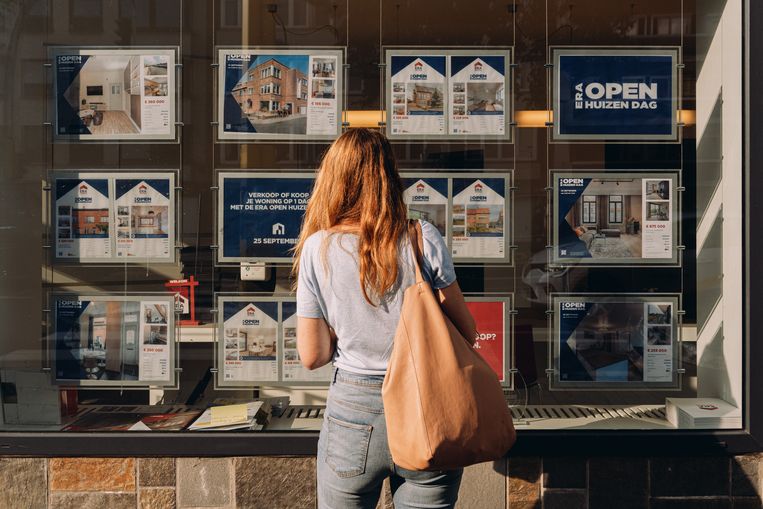Belgians are the richest citizens in the world: with almost 250,000 dollars or 229,000 euros, the median wealth is nowhere as high as here. This is according to a leading report.
Actually, Belgians are quite rich. That is the main conclusion of the latest edition of the leading Global Wealth Report of the Swiss bank Credit Suisse, which was acquired by competitor UBS this year.
Each year, the authors of that report calculate the average and median wealth for almost all countries in the world. An important side note is that small countries such as Luxembourg and Monaco are excluded from the calculation because, according to the bank, they would distort the picture too much.
The average wealth in Belgium is 352,810 dollars (323,384 euros), good for eleventh place in the world. Average wealth is equal to the total wealth of a country divided by all adults. Because averages can be quite distorted by extreme values – a multi-billionaire raises that average more than someone without a home and on a living wage – the authors also look at the median wealth. This splits the population into two equal groups. Specifically applied to our country: half of the Belgians own more than almost 250,000 dollars (about 229,000 euros), the other half less.
Even though our median wealth was down $7,860 from last year, we jumped Australia for the first time. Economists Peter Vanden Houte (ING) and Tom Simonts (KBC) point to the importance of exchange rates in the calculation. “This is mainly due to the Australian dollar, which has weakened against the US dollar, which the authors use to calculate,” says Simonts.
On the other hand, it is not surprising that Belgians have such a high median wealth. “If we look at the survey on household finances and consumption (HFCS) that the European Central Bank (ECB) has already conducted four times, we see very similar results,” says Vanden Houte. There are some differences – calculations are made in euros and not dollars, per household and not per adult – the result is more or less the same. After Luxembourg and Malta, which Credit Suisse does not take into account, Belgian families also appear to be the richest in Europe.
Brick in the stomach
This has a number of causes that all interact: the automatic wage indexation, the brick in the stomach of Belgians, and our large piggy bank. For example, especially last year, indexation has protected many Belgians against high inflation.
Furthermore, real estate is a major explanation for the high wealth of Belgians. Credit Suisse counts all cash, investments and real estate, minus debts, as assets. About 70 percent of all Belgians own a house or apartment. That is simply more than in many other countries. If we only take median net income into account, then six countries in Europe (Switzerland, Luxembourg, Denmark, the Netherlands, Ireland and Austria) precede us. “If we look at real estate, we see that many Belgians benefited from the high inflation,” says Simonts. “Mortgage loans remained the same in nominal terms but were eroded by inflation. At the same time, the value of real estate has risen sharply over the past ten years.”
“Through the housing bonus (a favorable tax measure that was abolished in 2020, PG) the government once again encouraged citizens to buy a home,” says Arne Maes, economist at BNP Paribas. “And cultural factors also play a role: the reflex to save is really ingrained in Belgians, for example.”
Public finances
The comment that every economist makes: it is citizens who build up such a piggy bank, not our government. “When we talk about wealth and wealth, we must also include the health of public finances,” says Vanden Houte. “It is often said that Belgium has rich inhabitants, but a poor state. In fact, according to some economists, the two are communicating vessels, namely that citizens lay a nest egg because they feel that the government is not doing it for them.”
With a median wealth of $ 143,890, Norway, for example, ranks a lot lower than Belgium in the ranking. But that is without taking into account the high government pensions, the government’s gas revenues and the national wealth fund in which every Norwegian has a share.
Finally, it is striking how the average and median wealth of our country are closer to each other than in many other countries. National debt or not, the government and our social security system play an important role in this. “An important measure in this is the difference in the gini coefficient (a yardstick for expressing inequality, PG) before and after government intervention,” says Maes. “The closer that coefficient is to zero, the lower the inequality. According to the latest pre-corona figures, from 2019, government intervention in Belgium caused the coefficient to decrease by 0.23 to 0.26. Only Finland does better with a drop of 0.24.”
“Despite all the caveats we can make, with our developed welfare state and high taxes, wealth is distributed more equally in Belgium than in other countries,” says Vanden Houte.


